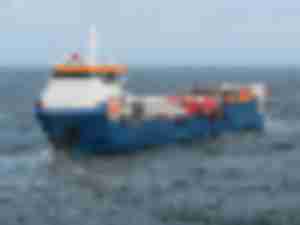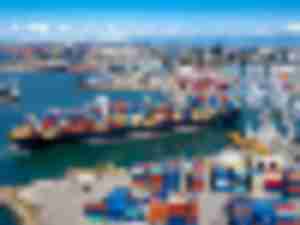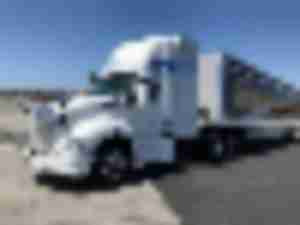Container inspection: An unsolved need.
This article is on containers, more specific on the inspection of containers and the challenges that increasing trade brings along for that important task in our need for global security.
Whitehead Is new Propeller Club Executive Vice President
Retired U.S. Coast Guard Rear Admiral Joel Whitehead, has been appointed as the new executive vice president of the International Propeller Club of the United States (IPCUS).
Yellow’s CEO sees LTL in growth mode in opening SMC3 Connections conference
As the overall U.S. economy and e-commerce demands in particular continue to grow, the less-than-truckload transportation industry should flourish provided it meets such challenges as having enough drivers and available equipment.
Five Rivers Distribution’s President Shell sees Arkansas River recovery but urges infrastructure investments in inland waterways
The McClellan-Kerr Arkansas River Navigation System crosses the state of Arkansas into Oklahoma traversing the state until it reaches the Port of Catoosa, near Tulsa, Oklahoma. The 445-mile navigation channel begins at the confluence of the White and Mississippi Rivers.
Green Shipping Line proposes U.S. feeder ships to deliver components to offshore wind farms using U.S. Atlantic Coast ports
U.S.-based Green Shipping Line (GSL) is proposing to build the first of what it hopes will be a fleet of feeder ships to transport wind turbine components from U.S. Atlantic coast ports to new Atlantic coast wind farms, according to Percy Pyne, Chairman and CEO.
IRPT’s Andres says US inland ports need more infrastructure investment
Aimee Andres, executive director, Inland Rivers, Ports and Terminals, Inc. (IRPT), says U.S. inland river ports and terminals are recovering from the 2019 flooding, but need major new investments including support for moving more containers on barges to the Port of New Orleans and other Gulf Coast ports.
PMSA report warns that California ports’ zero emission goals could be limited by grid capacity
On June 9th the Pacific Merchant Shipping Association (PMSA) published a report, prepared by the engineering firm Moffat & Nichol, which raises serious questions about the ability of California’s grid to meet zero emission goals, utilizing increased electricity, as proposed by California ports.
Port of Los Angeles surpasses 10 million containers in 12 months
The Port of Los Angeles has become the first port in the Western Hemisphere to process 10 million container units in a 12-month period on June 10th.
COVID outbreak at South China Port of Yantian could cause shipping disruptions of 2-5 weeks
The disruption of ocean containers stuck at the Port of Yantian in South China due to a COVID-19 outbreak “will cause ripples of potential congestion at the destination with a lag time of some 2-5 weeks,” according to Lars Jensen, CEO of Danish consultancy Vespucci Maritime.
Port of Los Angeles, Toyota and Kenworth partner on hydrogen fuel cell Class 8 trucks
Under the $82.5 million Shore-to-Store (S2S) project, the Port of Los Angeles and more than a dozen public and private sector partners have teamed up for a 12-month demonstration of zero-emission Class 8 trucks and will expand the project to include five more hydrogen-fueled heavy-duty trucks, two battery-electric yard tractors, and two battery-electric forklifts, according to a June 7th Port announcement.
© Copyright 1999–2024 American Journal of Transportation. All Rights Reserved











